- Home
- Warhammer 40K
Knight of Talassar - Steve Lyons Page 4
Knight of Talassar - Steve Lyons Read online
Page 4
For twenty seconds or more, the orks obliged. Then, as the thunder died down, Lucien gave the order, ‘Armour, advance and fire at will!’
The tanks advanced, their main guns blazing; within seconds, a smoke cloud had descended over no-man’s-land and Lucien could see nothing but hazy, slowly-shifting silhouettes through it. He had to rely on the vox-chatter to tell him what was happening. His tank commanders were reporting strike after strike against the Indestructible’s ramparts, but little visible damage being done to them.
In contrast, it didn’t seem at all long before the first Vindicator took a direct hit which ripped its roof off. Its crew of three survived, thank the Emperor, but were forced to bail out of their burning vehicle. They found themselves in the heart of a veritable firestorm, caught in the crossfire between two inexorable forces. The Ultramarines power armour would do little to protect them from the shells that were whistling around their ears; nor were there any enemies in range of their handheld weapons. The only thing they could do was run for cover.
‘My men should be out there.’ It was the Krieg captain’s voice again.
‘No. I’m holding back our infantry,’ said Lucien, ‘until the biggest guns have been disabled. Then they might stand a chance of actually making it across that killing field to the enemy. That applies to Imperial Guardsmen and Space Marines alike. Right now, there’s nothing they can do out there but die.’
There was the briefest of pauses before the captain said, tonelessly: ‘That is what the Death Korps of Krieg does best.’
Lucien wasn’t sure he had heard correctly; but then, the captain continued, ‘Each shell that a Korpsman intercepts is a shell that doesn’t hit one of your tanks – which in turn means the tank can keep on firing. I have many hundreds of men and they are easily replaceable. You have only a handful of tanks and we cannot afford to lose them.’
He couldn’t argue with that logic.
Lucien remembered what Captain Sicarius had told him. He only had to keep the orks occupied, he had said, while his combat squad dug their way into the star fort from below. The plan seemed risky to him, though, and he could win the battle on the surface, he was sure of it.
Sicarius couldn’t be contacted any longer; but anyway, he had left Lucien in command. Lucien knew that, if he agreed to the Krieg captain’s suggestion, let the Korpsmen form a human shield for his artillery, then the casualty rate would be horrendous – but then, wasn’t that the Krieg captain’s call to make?
And wasn’t he also right? Human lives – the lives of Krieg men, especially, from what Lucien had heard tell of them – were the Imperium’s most expendable commodity. The Indestructible’s value, it seemed, was inestimable.
There were hundreds, maybe thousands, of Imperial Guardsmen on this moon, in addition to the Ultramarines themselves, the Emperor’s finest – but they couldn’t defeat their enemies, nor even keep them occupied, if they were cowering in holes in the ground.
A Predator commander reported a glancing blow that had cracked his vehicle’s armour and crippled its engine. Its weaponry, however, was still functional, which, against a static target, was all that mattered.
A moment later, there was rather better news. Two of the enemy’s guns had fallen silent. There was too much smoke for anyone to tell for sure, but the assumption had to be that they were damaged or destroyed.
‘Target the guns around them,’ Lucien ordered.
The star fort’s cannons were well-protected, built into its walls as they were, but that meant they had a limited field of fire. If his tanks could take out enough of them in a row, he thought, then they might create a blind spot on the battlefield through which his infantry could advance with relative impunity.
It was a realistic hope, but regrettably one short-lived.
A new sound, an angry scream, sliced through the other sounds; a new light, blinding, white, turned the fog transparent for an instant. The vox-channels were clogged by a dozen voices, each trying to describe what they had just seen: ‘–beam of energy–’ ‘–from one of the star fort’s towers–’ ‘–cut through the Imperial Thunder in a–’ ‘–armour plating just melted like–’
The Indestructible had a lance, an ultra-powerful energy weapon.
Of course it did. It had a battery of lances; they were right there on the schematics, it was just that Khargask hadn’t seen fit to use them until now. Sicarius had hoped that they had been damaged in the crash, or that they simply devoured more energy than the star fort could currently generate.
Lucien tried to contact the Imperial Thunder, but received no reply, only a telltale hiss of static. He counted forty-one seconds – of recharging time? – before a second energy beam lashed out; but, thank the Emperor, this one was off-target and only ploughed a new trench into the ground.
In the meantime, two more of the star fort’s main guns had been put out of action.
‘We could pull the tanks back,’ suggested Dast from inside the command dugout. ‘We certainly have the orks’ attention. If we regroup at the edge of the lance’s range and keep up the Earthshaker bombardment, then I’m sure we can hold it.’
Perhaps, thought Lucien.
‘No. Send them forward,’ said the Krieg captain. ‘The lance is mounted inside the star fort’s basilica. The closer they get to it, the harder it will be for the orks to target them – until eventually, the angle becomes impossible.’
He was right. The problem with his plan was that the Imperial tanks would find themselves pinned down, at the mercy of the star fort’s cannons, though possibly not for very long. If they could just do a little more damage themselves, thought Lucien, knock out a few more of those emplacements…
It could mean the difference between a frustrating stalemate and a glorious victory – or perhaps, he had to admit to himself, a terrible defeat.
It was the captain’s next words that convinced him: ‘My men are still at your disposal, Sergeant Lucien.’
He set his jaw grimly and gave the order. ‘All Imperial forces, full advance. Krieg infantry to take the vanguard and protect our tanks to the best of their ability. Artillery commanders, don’t stop until you reach the star fort’s walls and break them down. Ultramarines, bring up the rear, and be ready to board the Indestructible as soon as you see an opening. The Emperor is with us and, with his strength in our arms and his fury in our weapons, we can vanquish his enemies today and reclaim what is rightfully His. Courage and honour!’
He could do this, he thought. He could visit vengeance upon the upstart xenos, expunge the Imperium’s very public shame – and be the hero of the story, after all.
CHAPTER VI
The orks had blocked the mine tunnel with broken props, razor wire, scraps of rusted machinery – and the badly decaying corpses of Death Korpsmen.
Techmarine Renius had been working on the barricade for almost twenty minutes. A krak grenade would have been quicker, but too noisy for Sicarius’s liking. The Termite-made tunnel was too narrow for him to join his Techmarine up front and lend his assistance. He had no option but to sit back and let Renius do his job.
Patience was not one of the captain’s virtues, and he chafed at every second of enforced inactivity. He wished he could contact Sergeant Lucien – better still, Brother Ultracius – to ask how their part of the operation was proceeding; but he was probably too deep underground, and, anyway, vox silence was advisable.
Renius wrenched the last stinking body from a wire tangle and passed it up the sloping tunnel to get it out of his way. Sicarius noticed that the Korpsman had been stripped of his body armour and weapons – by the orks or by his own comrades?
There was a sizeable gap in the barricade now, which Renius squeezed through feet first. Sicarius followed him eagerly, and lowered himself into a dusty mine tunnel taller than he was and, thankfully, three times as broad. A chain of lumoglobes was strung from the ceiling, but they were inactive.
The darkness was total, and Sicarius could only see in infrared. Th
e mine tunnel ran north-south. To the north, it ended in a blank rock face, while to the south it had collapsed around a broken support. It was approximately four hundred metres long, with two openings in its eastern wall.
The first opening had caved in too and was completely blocked; the second, according to the Krieg captain’s information, might lead them to the Indestructible. Sicarius detected a faint current of air between the opening and the one through which he had just emerged, which was a promising sign.
‘They ought to have posted a sentry here,’ he grumbled. ‘If I were Khargask, I would have posted sentries.’
‘Perhaps he had none to spare,’ Brother Lumic suggested, clambering out of the tunnel wall behind his captain. Like the rest of the Ultramarines, he moved with a stealth and precision that belied his considerable bulk. Still, every scrape of his armour against rock, every contact between his boots and the ground, sounded like a crack of thunder in Sicarius’s ears; as had his own.
‘There are hundreds of kilometres of mine tunnels,’ added Renius, ‘and no way for the orks to know where we might enter them. If their leader is as smart as we think he is, he’ll have set up tremor sensors to detect any digging or drilling.’
‘I would still have had these tunnels patrolled,’ said Sicarius, obdurately.
The rest of his team had joined him in the tunnel by now. They numbered five in all: the captain, the Techmarine and three veteran battle-brothers from his command squad. He wished that Ultracius could have joined them. He missed the Dreadnought’s pragmatic counsel, not to mention his heavy bolters and power fist.
He cranked his auto-senses up to maximum sensitivity. He could hear tiny insects crawling in the nicks of the walls, but detected no other signs of life, no body heat or exhaled gases, within his range.
Cautiously, he advanced towards the unblocked tunnel entrance, motioning to his brothers to follow at a discreet distance. The tunnel ran eastward, its mine props intact, for as far as he could see. It was an open invitation.
He looked again. There had to be something else, and now he saw it: a metal thread, a fraction colder than the surrounding air. It was stretched across the width of the tunnel, forty metres in. He pointed it out to Renius: ‘A tripwire.’
The Techmarine ventured forwards and crouched in front of it. He followed the wire with his eyes, to a hidden recess in the northern wall. He reached into the hole and teased out a bundle of crudely-constructed stick bombs, holding them by their handles. He lowered the explosives carefully to the ground; only then did his servo-arm crane over his head to snip the wire.
Renius stood up, turned back to Sicarius and nodded.
Another barrier awaited them, further along the tunnel.
This one wasn’t constructed as the last one had been; the tunnel roof had simply collapsed, though whether by accident or design was impossible to tell.
Sicarius’s auspex revealed a path through, wide enough for an undersized human being to negotiate – or something wirier. It wasn’t nearly wide enough to accommodate an armoured Space Marine – and any attempt to broaden it, Renius warned, would likely only bring more earth down on top of them.
Sicarius consulted his uploaded maps to find a way around. He sent two brothers to scout a pair of likely looking tunnels, while he explored a third. Barely had he taken ten strides along his tunnel when he detected another cave-in ahead of him and was forced to turn back, frustrated.
He heard a flurry of movement behind him, from the tunnel he had just left, then a squeal and a sharp snap of bone. He hurried back, to find the Techmarine and Brother Filion standing over a dead gretchin.
‘It came crawling through the blockage, captain,’ explained Filion. ‘We heard it before it could see us and were waiting when it poked its head out of the dirt.’
They listened, all three of them, but heard no more creatures coming after the first. Still, the presence of just this one confirmed that they were drawing close to their objective – and that this area, at least, was patrolled.
‘If we’re lucky,’ said Renius, ‘there will only be gretchin down here. The orks will be manning the guns up top as we planned. Still, we cannot allow one gretchin to see us and live. It will scuttle straight back to its masters with word of our approach.’
Brother Gallo’s explorations bore more fruit than the others, thank the Emperor. They marched along an ascending, narrowing tunnel, and soon heard noises ahead of them: the capering and screeching of many more gretchin.
The others held back as Sicarius crept to the tunnel’s end. It opened onto a precarious stone ledge: it was a gallery, in fact, with a handrail, which circled and overlooked a large natural cavern.
It looked as if the cavern had been used as a storeroom for mining equipment. However, its roof had partially collapsed too, and its occupants were busy digging scraps of metal out from under the wreckage. Presumably, Khargask had set them to that task – which made Sicarius wonder, once again, what his objectives were. What was he trying to build?
A single lumoglobe had survived the collapse, hanging from a frayed wire. In its flickering white light, Sicarius counted twenty gretchin, scampering sure-footedly across treacherous heaps of debris.
He returned to his battle-brothers and appraised them of his findings. ‘We have no choice,’ he told them. ‘We have to go through them.’
He sent Lumic and Filion out onto the gallery first and had them circle left and right respectively. The gretchin heard them almost immediately, of course, their pointed ears twitching as their oversized nostrils sniffed the air.
By then, however, Sicarius had vaulted the balcony rail.
He landed with an unavoidable clang, though the pair of gretchin he had chosen to use as crash mats softened the sound somewhat. One of them died instantly, crushed by his plummeting weight. The other tried to wriggle out from under him, but Sicarius thrust his gladius through it.
He used the short-bladed weapon rather than the Tempest Blade. The hereditary weapon of his family and symbol of his role as Knight of Talassar was his preferred weapon, but the gladius was better for such close quarter fights. It didn’t have the reach of the larger blade, but then it hardly needed it. Five, six, seven gretchin piled eagerly on top of Sicarius, clawing and snapping at him viciously. Some of them hacked and bashed at his armour with primitive knives and clubs. At least the orks hadn’t armed them with guns, he thought.
It wasn’t these gretchin that worried him.
Others of their kind had been wiser, or just more cowardly. They had seen the other intruders up on the gallery and had known they were outmatched. They had scattered, and several of them had made straight for the exits.
Eight tunnels led away from the cavern in all, at various levels. Sicarius’s map had indicated that at least two of them could lead to the star fort. Sure enough, the majority of the gretchin were headed towards those tunnels.
Brother Lumic leapt into their midst, his boltgun drawn. He was too late to stop three of them from reaching a tunnel mouth. He clicked his weapon to full auto and sprayed the gretchin from behind, cutting them down.
The others did as Sicarius had expected they would. They scattered. They leapt behind – and, in some cases, under – mounds of debris, or made for the openings on the opposite side of the cavern. It was this latter group that concerned him the most. If they were left wandering the mine tunnels…
It wasn’t an issue. The fleeing gretchin found Brother Filion in their path, and fully half of them shied away from a confrontation with him. The remaining three tried to bull rush him out of their way and swiftly paid for their mistake.
Sicarius had deliberately been fighting a defensive battle, outnumbered by his attackers but wanting to keep them occupied, letting them imagine that they stood a chance against him. The time for that pretence had ended, as Renius and Brother Gallo dropped into the cavern to each side of him.
The gretchin were quick to see that they were beaten, their rabid jabbering giving way to terri
fied squeals. They dropped away from Sicarius, but found they had nowhere left to run. He caught one as it tried to scrabble away from him; it squirmed and scratched and spat as he crushed its windpipe with one powerful arm.
His brothers employed their gladii where they could. They slashed and stabbed at their enemies’ throats and stomachs, until the air was heavy with the stink of xenos blood. Only once did Renius have to loose off an explosive bolt-round, at a gretchin that had almost managed to slip past him and away.
Barely two minutes after it had begun, the skirmish was over.
It took a little longer for the surviving gretchin to be rooted out of their hiding places in the rubble and efficiently executed, usually by a quick slash of a blade across the throat. Sicarius and Filion did the honours, while their brothers stood guard over the exit tunnels. Sicarius was glad to see that no orks or other creatures had appeared in response to the noise they had made.
At last, his auspex detected no more living beings in the cavern, other than the five Ultramarines themselves. They collected their enemies’ bodies, intending to cover them in case something did eventually pass this way. Renius counted the dead and reported that there were nineteen of them.
‘There were twenty,’ Sicarius growled.
He double-checked the Techmarine’s count, but found no fault with it. Behind his concealing helmet, his face folded into a scowl. ‘I saw twenty gretchin here,’ he reiterated, knowing that all present would understand the import of his words.
‘One of them got away.’
CHAPTER VII
In the end, after long weeks of waiting, the inevitable happened suddenly.
Kenjari heard the order through his earpiece, without fully understanding it; perhaps, rather, without wanting to believe it.
The voice of the Krieg captain had been entirely dispassionate, too much so for a man who was sending other men to their deaths.

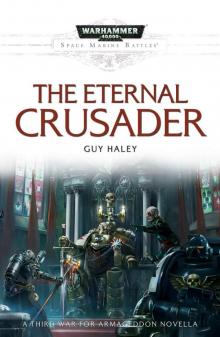 The Eternal Crusader - Guy Haley
The Eternal Crusader - Guy Haley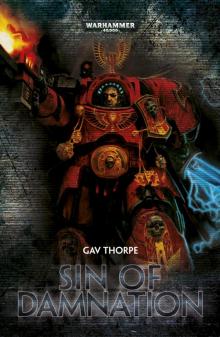 Sin of Damnation - Gav Thorpe
Sin of Damnation - Gav Thorpe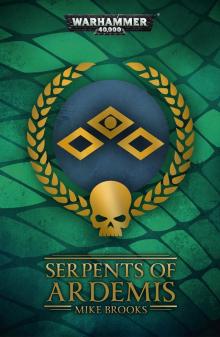 Serpents of Ardemis - Mike Brooks
Serpents of Ardemis - Mike Brooks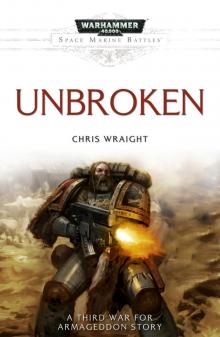 Unbroken - Chris Wraight
Unbroken - Chris Wraight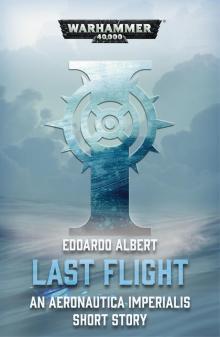 Last Flight - Edoardo Albert
Last Flight - Edoardo Albert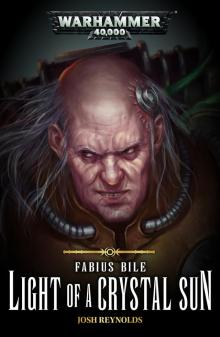 Light of a Crystal Sun - Josh Reynolds
Light of a Crystal Sun - Josh Reynolds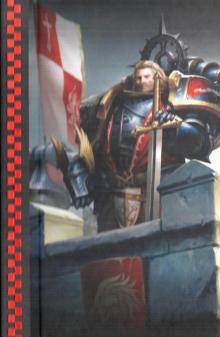 Lion El'Jonson- Lord of the First - David Guymer
Lion El'Jonson- Lord of the First - David Guymer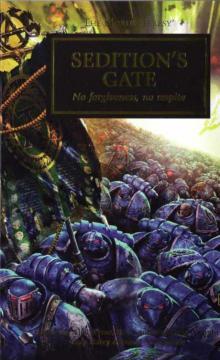 Sedition's Gate - Nick Kyme & Chris Wraight
Sedition's Gate - Nick Kyme & Chris Wraight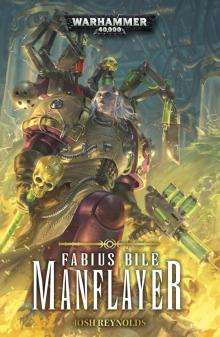 Manflayer - Josh Reynolds
Manflayer - Josh Reynolds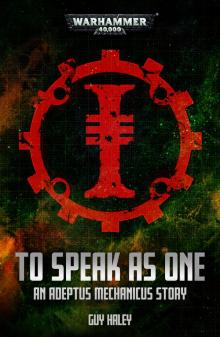 To Speak as One - Guy Haley
To Speak as One - Guy Haley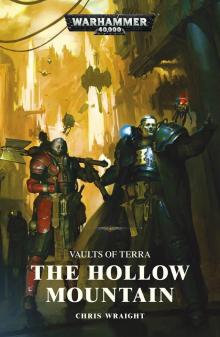 Vaults of Terra- The Hollow Mountain - Chris Wraight
Vaults of Terra- The Hollow Mountain - Chris Wraight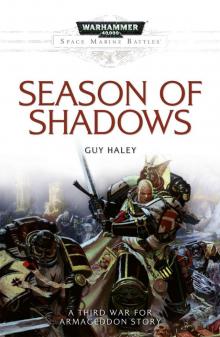 Season of Shadows - Guy Haley
Season of Shadows - Guy Haley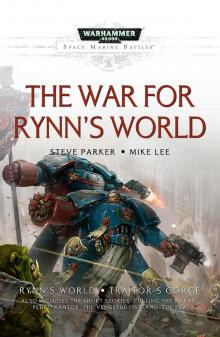 The War for Rynn's World - Steve Parker & Mike Lee
The War for Rynn's World - Steve Parker & Mike Lee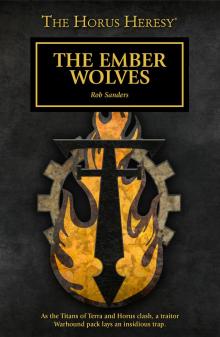 The Ember Wolves - Rob Sanders
The Ember Wolves - Rob Sanders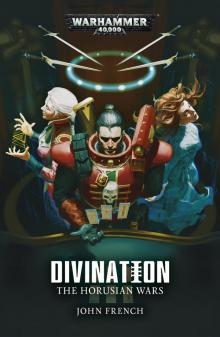 Divination - John French
Divination - John French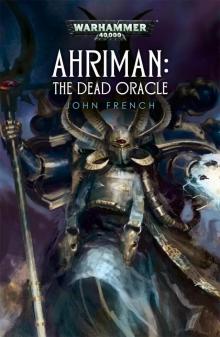 The Dead Oracle - John French
The Dead Oracle - John French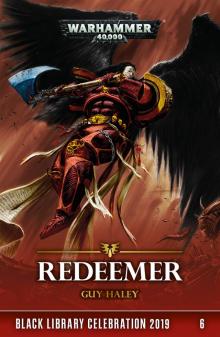 Redeemer - Guy Haley
Redeemer - Guy Haley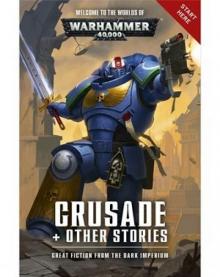 Crusade & Other Stories - Dan Abnett Et Al.
Crusade & Other Stories - Dan Abnett Et Al.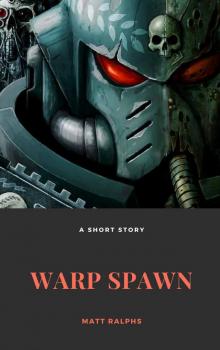 Warp Spawn - Matt Ralphs
Warp Spawn - Matt Ralphs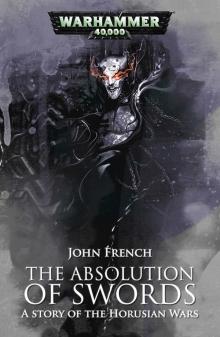 The Absolution of Swords - John French
The Absolution of Swords - John French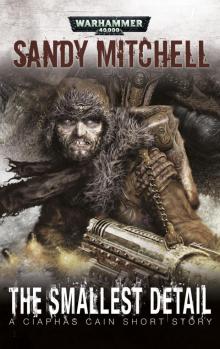 The Smallest Detail - Sandy Mitchell
The Smallest Detail - Sandy Mitchell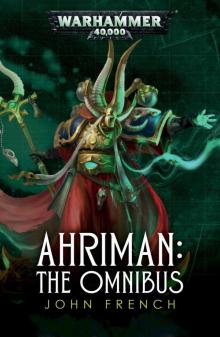 The Omnibus - John French
The Omnibus - John French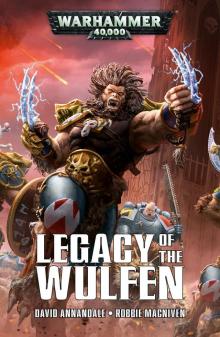 Legacy of the Wulfen - David Annandale & Robbie MacNiven
Legacy of the Wulfen - David Annandale & Robbie MacNiven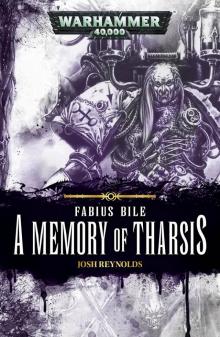 A Memory of Tharsis - Josh Reynolds
A Memory of Tharsis - Josh Reynolds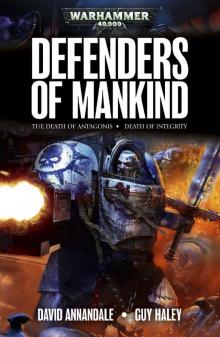 Defenders of Mankind - David Annandale & Guy Haley
Defenders of Mankind - David Annandale & Guy Haley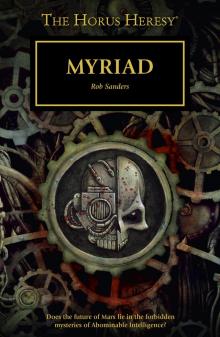 Myriad - Rob Sanders
Myriad - Rob Sanders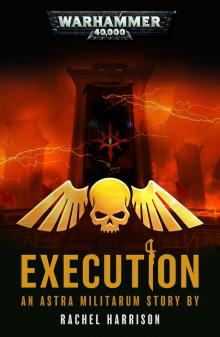 Execution - Rachel Harrison
Execution - Rachel Harrison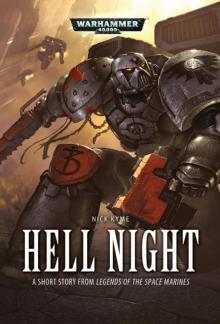 Hell Night - Nick Kyme
Hell Night - Nick Kyme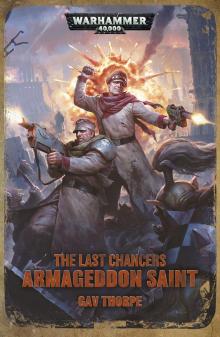 Armageddon Saint - Gav Thorpe
Armageddon Saint - Gav Thorpe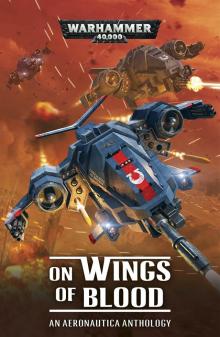 On Wings of Blood
On Wings of Blood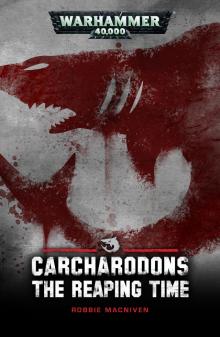 The Reaping Time - Robbie MacNiven
The Reaping Time - Robbie MacNiven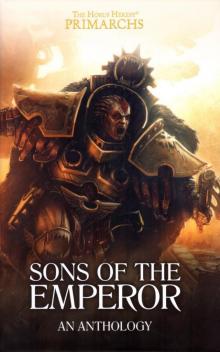 Sons of the Emperor
Sons of the Emperor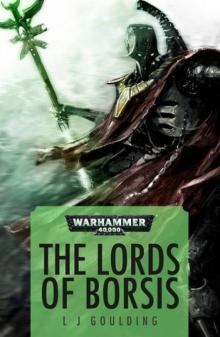 The Lords of Borsis - L J Goulding
The Lords of Borsis - L J Goulding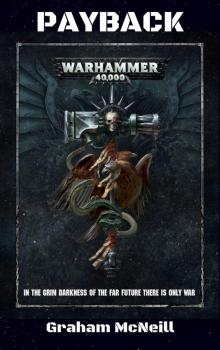 Payback - Graham McNeill
Payback - Graham McNeill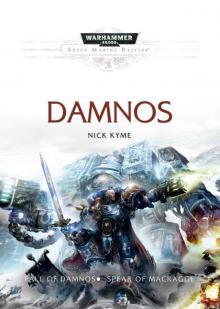 Damnos - Nick Kyme
Damnos - Nick Kyme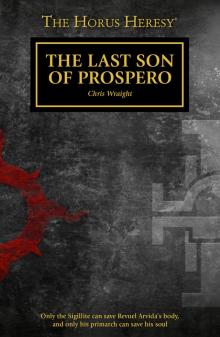 The Last Son of Prospero - Chris Wraight
The Last Son of Prospero - Chris Wraight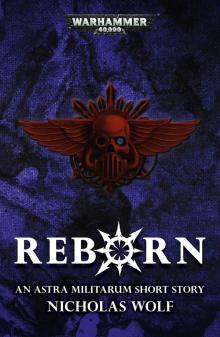 Reborn - Nicholas Wolf
Reborn - Nicholas Wolf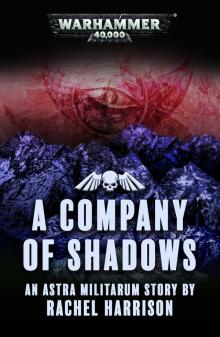 A Company of Shadows - Rachel Harrison
A Company of Shadows - Rachel Harrison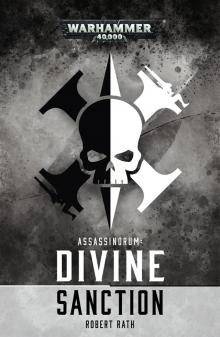 Assassinorum- Divine Sanction - Robert Rath
Assassinorum- Divine Sanction - Robert Rath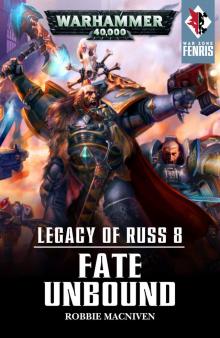 Fate Unbound - Robbie MacNiven
Fate Unbound - Robbie MacNiven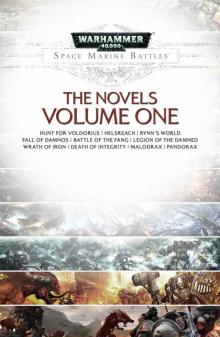 Space Marine Battles - the Novels Volume 1
Space Marine Battles - the Novels Volume 1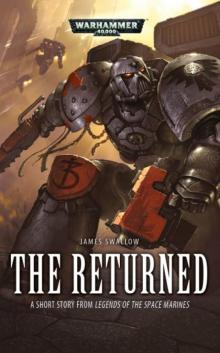 The Returned - James Swallow
The Returned - James Swallow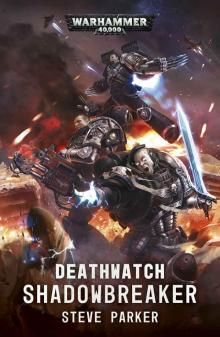 Shadowbreaker - Steve Parker
Shadowbreaker - Steve Parker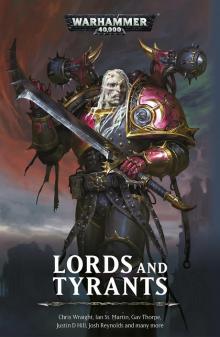 Lords and Tyrants
Lords and Tyrants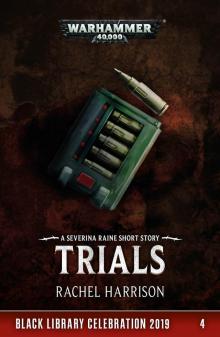 Trials - Rachel Harrison
Trials - Rachel Harrison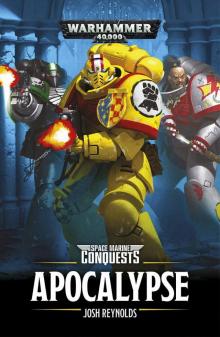 Apocalypse - Josh Reynolds
Apocalypse - Josh Reynolds The labyrinth - Richard Ford
The labyrinth - Richard Ford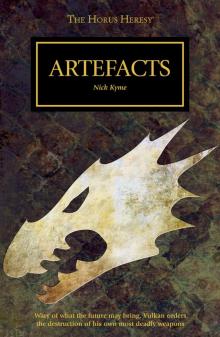 Artefacts - Nick Kyme
Artefacts - Nick Kyme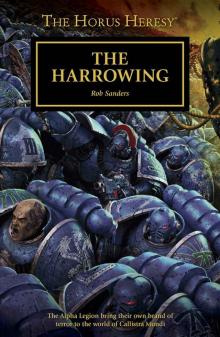 The Harrowing - Rob Sanders
The Harrowing - Rob Sanders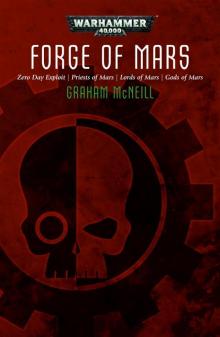 Forge of Mars - Graham McNeill
Forge of Mars - Graham McNeill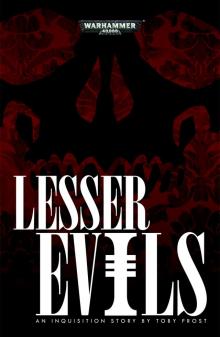 Lesser Evils - Toby Frost
Lesser Evils - Toby Frost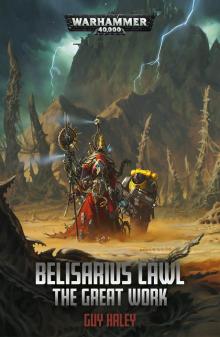 Belisarius Cawl- the Great Work - Guy Haley
Belisarius Cawl- the Great Work - Guy Haley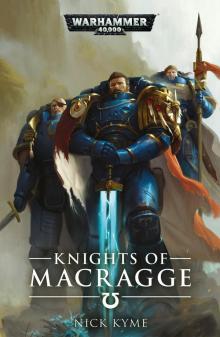 Knights of Macragge - Nick Kyme
Knights of Macragge - Nick Kyme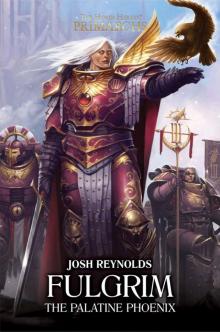 Fulgrim- The Palatine Phoenix - Josh Reynolds
Fulgrim- The Palatine Phoenix - Josh Reynolds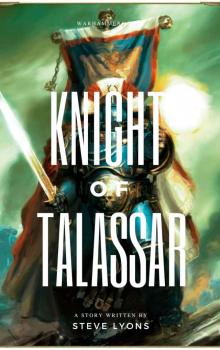 Knight of Talassar - Steve Lyons
Knight of Talassar - Steve Lyons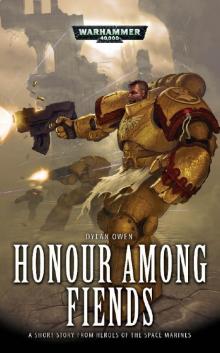 Honour Among Fiends - Dylan Owen
Honour Among Fiends - Dylan Owen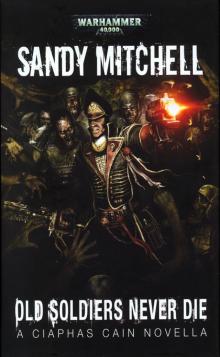 Old Soldiers Never Die - Sandy Mitchell
Old Soldiers Never Die - Sandy Mitchell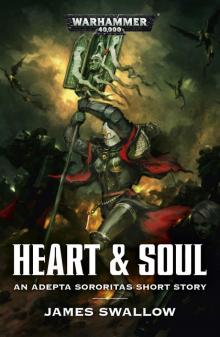 Heart & Soul - James Swallow
Heart & Soul - James Swallow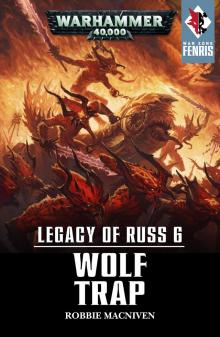 Wolf Trap - Robbie MacNiven
Wolf Trap - Robbie MacNiven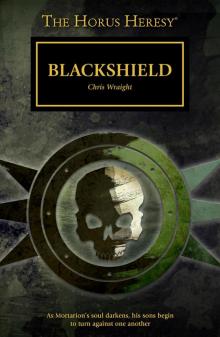 Blackshield - Chris Wraight
Blackshield - Chris Wraight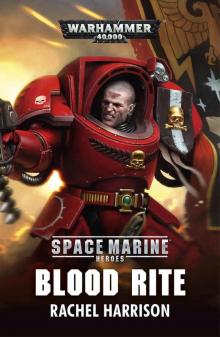 Blood Rite - Rachel Harrison
Blood Rite - Rachel Harrison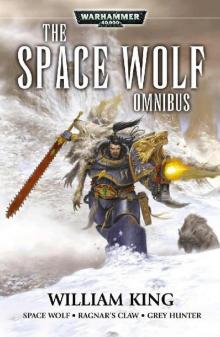 The Space Wolf Omnibus - William King
The Space Wolf Omnibus - William King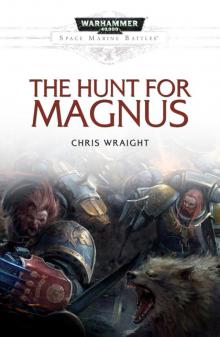 The Hunt for Magnus - Chris Wraight
The Hunt for Magnus - Chris Wraight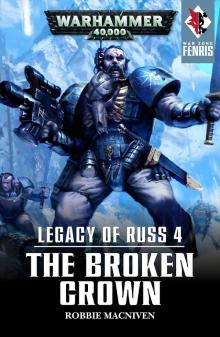 The Broken Crown - Robbie MacNiven
The Broken Crown - Robbie MacNiven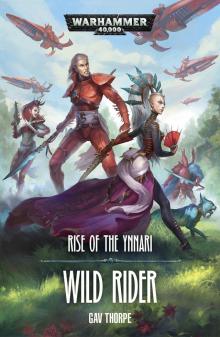 Wild Rider - Gav Thorpe
Wild Rider - Gav Thorpe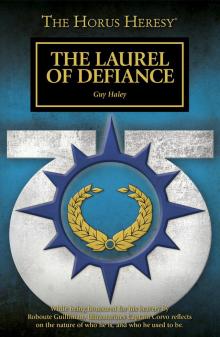 The Laurel of Defiance - Guy Haley
The Laurel of Defiance - Guy Haley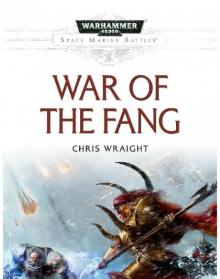 War of the Fang - Chris Wraight
War of the Fang - Chris Wraight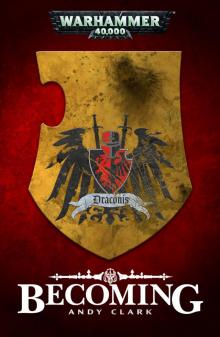 Becoming - Andy Clark
Becoming - Andy Clark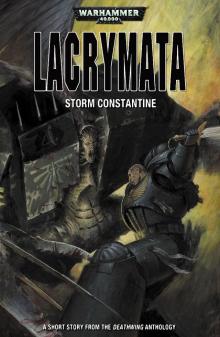 Lacrymata - Storm Constantine
Lacrymata - Storm Constantine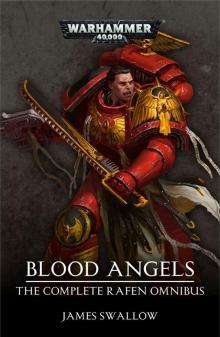 Blood Angels - The Complete Rafen Omnibus - James Swallow
Blood Angels - The Complete Rafen Omnibus - James Swallow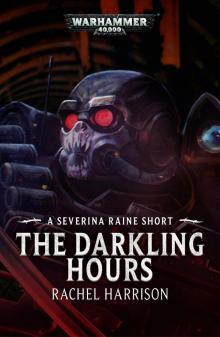 The Darkling Hours - Rachel Harrison
The Darkling Hours - Rachel Harrison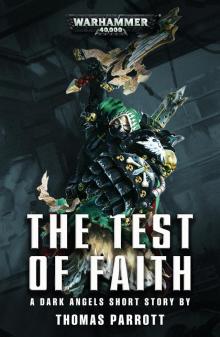 The Test of Faith - Thomas Parrott
The Test of Faith - Thomas Parrott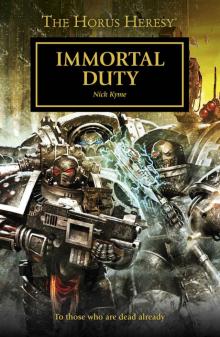 Immortal Duty - Nick Kyme
Immortal Duty - Nick Kyme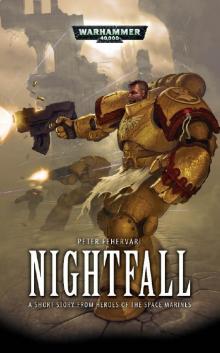 Nightfall - Peter Fehervari
Nightfall - Peter Fehervari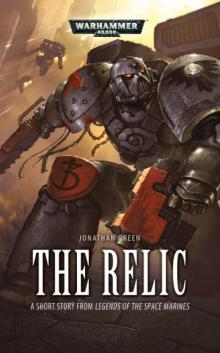 The Relic - Jonathan Green
The Relic - Jonathan Green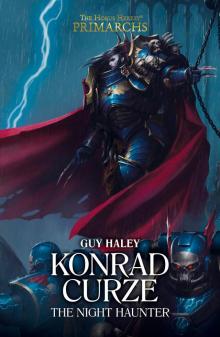 Konrad Curze the Night Haunter - Guy Haley
Konrad Curze the Night Haunter - Guy Haley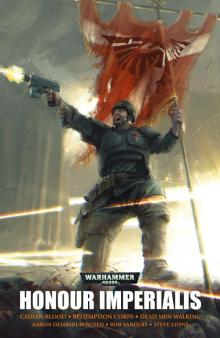 Honour Imperialis - Aaron Dembski-Bowden
Honour Imperialis - Aaron Dembski-Bowden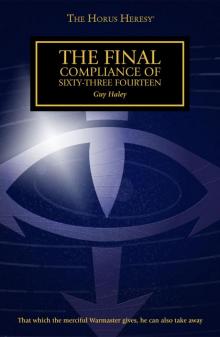 The Final Compliance of Sixty-Three Fourteen - Guy Haley
The Final Compliance of Sixty-Three Fourteen - Guy Haley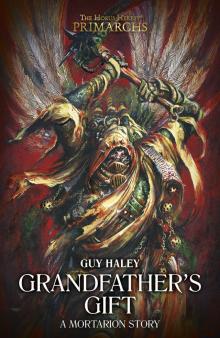 Grandfather’s Gift - Guy Haley
Grandfather’s Gift - Guy Haley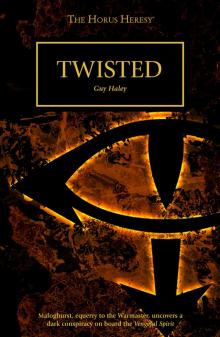 Twisted - Guy Haley
Twisted - Guy Haley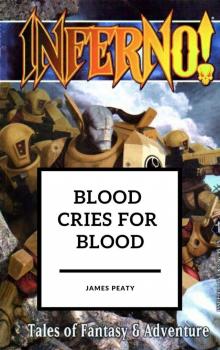 Blood Cries for Blood - James Peaty
Blood Cries for Blood - James Peaty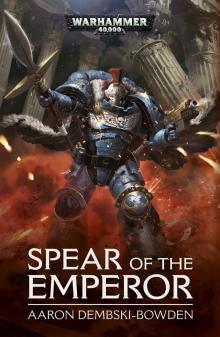 Spear of the Emperor - Aaron Dembski-Bowden
Spear of the Emperor - Aaron Dembski-Bowden All That Remains - James Swallow
All That Remains - James Swallow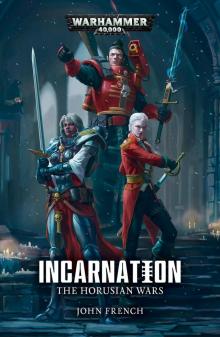 Incarnation - John French
Incarnation - John French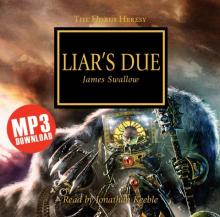 Liar's Due - Ben Swallow
Liar's Due - Ben Swallow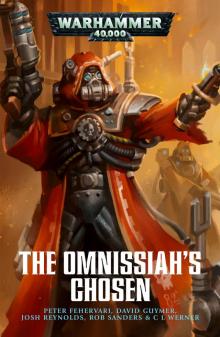 The Omnissiah's Chosen - Peter Fehervari
The Omnissiah's Chosen - Peter Fehervari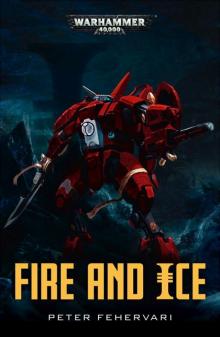 Fire and Ice - Peter Fehervari
Fire and Ice - Peter Fehervari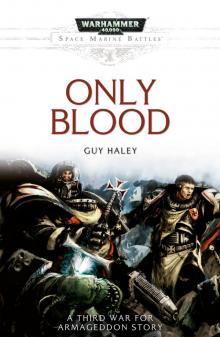 Only Blood - Guy Haley
Only Blood - Guy Haley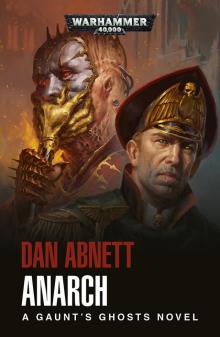 Anarch - Dan Abnett
Anarch - Dan Abnett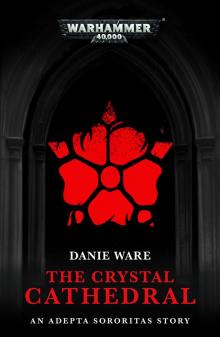 The Crystal Cathedral - Danie Ware
The Crystal Cathedral - Danie Ware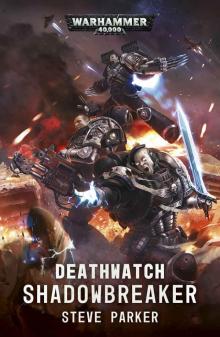 Shadowbreaker
Shadowbreaker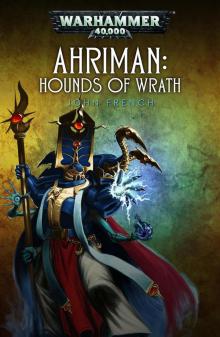 Hounds of Wrath - John French
Hounds of Wrath - John French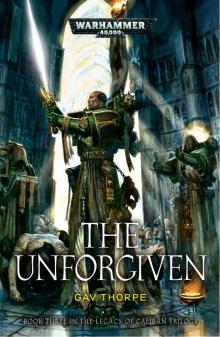 The Unforgiven - Gav Thorpe
The Unforgiven - Gav Thorpe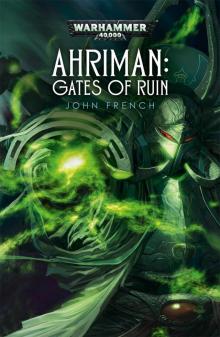 Gates of Ruin - John French
Gates of Ruin - John French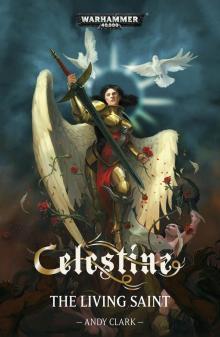 Celestine - Andy Clark
Celestine - Andy Clark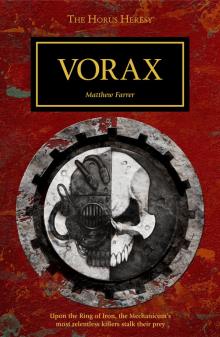 Vorax - Matthew Farrer
Vorax - Matthew Farrer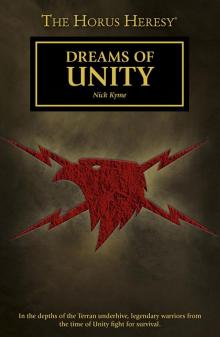 Dreams of Unity - Nick Kyme
Dreams of Unity - Nick Kyme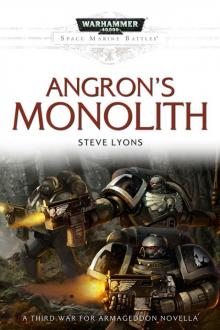 Angron's Monolith - Steve Lyons
Angron's Monolith - Steve Lyons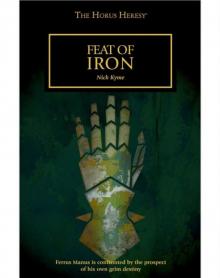 Feat of Iron - Nick Kyme
Feat of Iron - Nick Kyme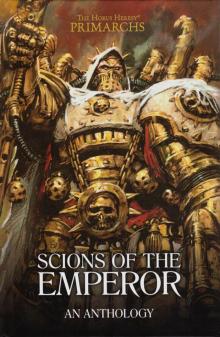 Scions of the Emperor
Scions of the Emperor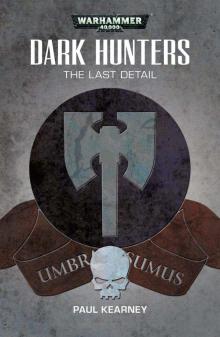 The Last Detail - Paul Kearney
The Last Detail - Paul Kearney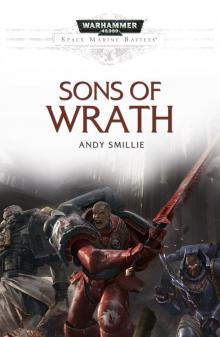 Sons of Wrath - Andy Smillie
Sons of Wrath - Andy Smillie Repentia - Alec Worley
Repentia - Alec Worley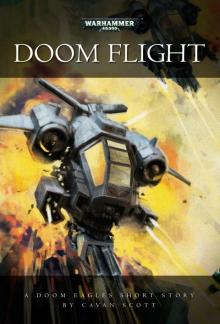 Doom Flight - Cavan Scott
Doom Flight - Cavan Scott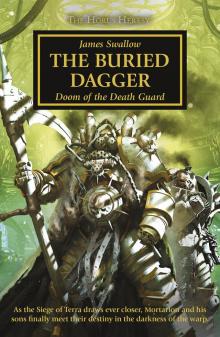 The Buried Dagger - James Swallow
The Buried Dagger - James Swallow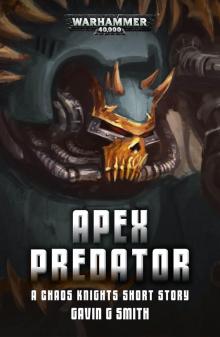 Apex Predator - Gavin G Smith
Apex Predator - Gavin G Smith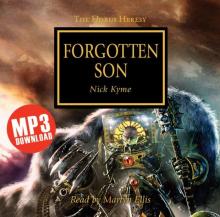 Forgotten Sons - Nick Kyme
Forgotten Sons - Nick Kyme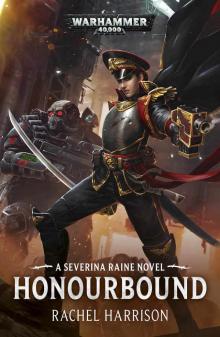 Honourbound - Rachel Harrison
Honourbound - Rachel Harrison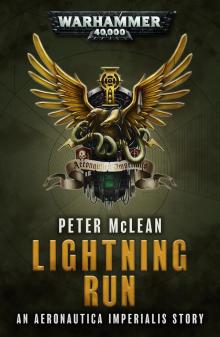 Lightning Run - Peter McLean
Lightning Run - Peter McLean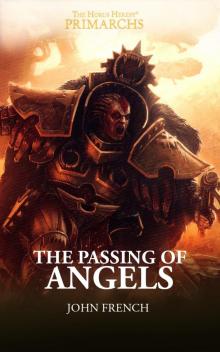 The Passing of Angels - John French
The Passing of Angels - John French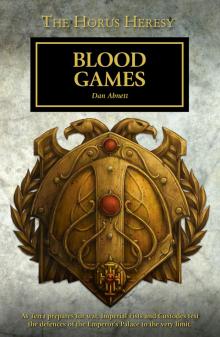 Blood Games - Dan Abnett
Blood Games - Dan Abnett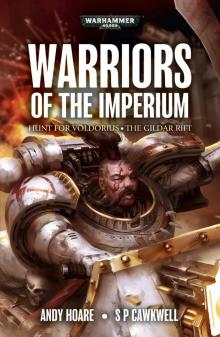 Warriors of the Imperium - Andy Hoare & S P Cawkwell
Warriors of the Imperium - Andy Hoare & S P Cawkwell Warcry
Warcry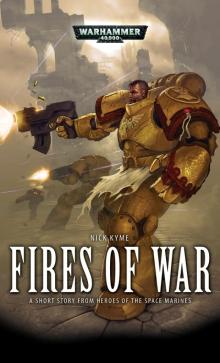 Fires of War - Nick Kyme
Fires of War - Nick Kyme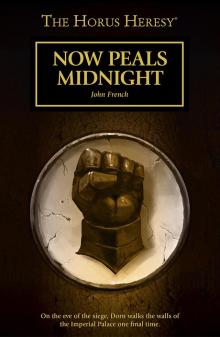 Now Peals Midnight - John French
Now Peals Midnight - John French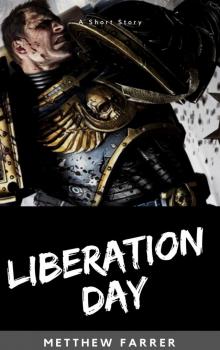 Liberation Day - Matthew Farrer
Liberation Day - Matthew Farrer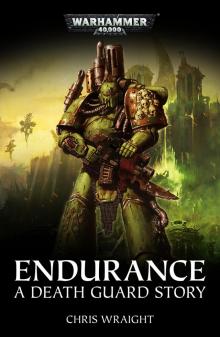 Endurance - Chris Wraight
Endurance - Chris Wraight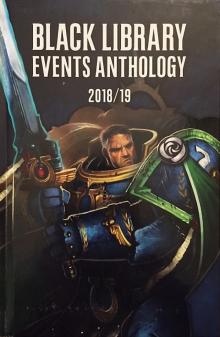 Black Library Events Anthology 2018-19
Black Library Events Anthology 2018-19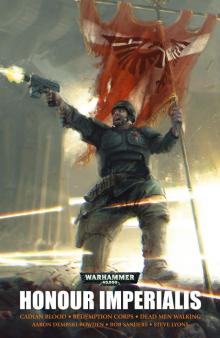 Honour Imperialis - Braden Campbell & Aaron Dembski-Bowden & Chris Dows & Steve Lyons & Rob Sanders
Honour Imperialis - Braden Campbell & Aaron Dembski-Bowden & Chris Dows & Steve Lyons & Rob Sanders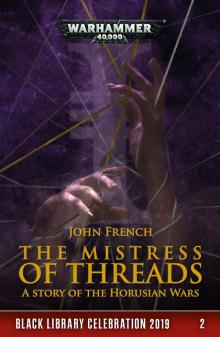 The Mistress of Threads - John French
The Mistress of Threads - John French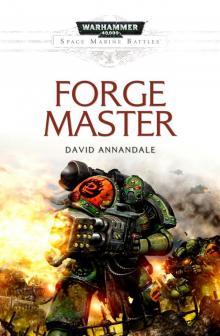 Forge Master - David Annandale
Forge Master - David Annandale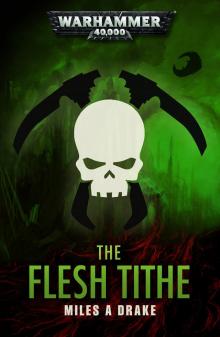 The Flesh Tithe - Miles A Drake
The Flesh Tithe - Miles A Drake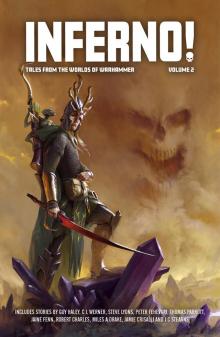 Inferno Volume 2 - Guy Haley
Inferno Volume 2 - Guy Haley Mercy of the Dragon - Nick Kyme
Mercy of the Dragon - Nick Kyme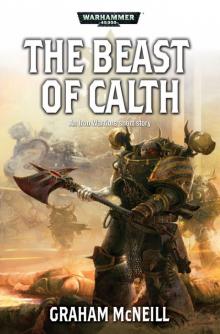 The Beast of Calth - Graham McNeill
The Beast of Calth - Graham McNeill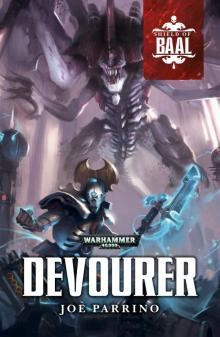 Devourer - Joe Parrino
Devourer - Joe Parrino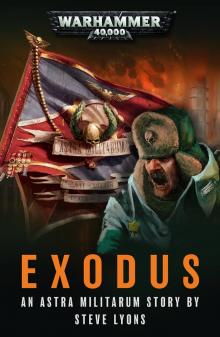 Exodus - Steve Lyons
Exodus - Steve Lyons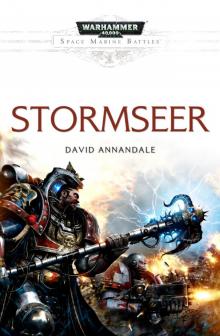 Stormseer - David Annandale
Stormseer - David Annandale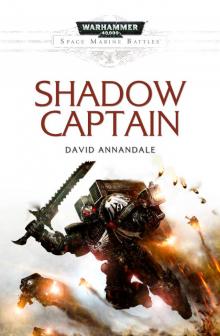 Shadow Captain - David Annandale
Shadow Captain - David Annandale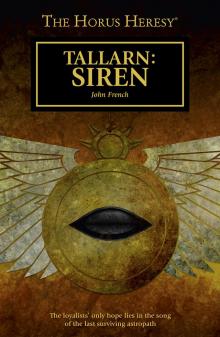 Tallarn- Siren - John French
Tallarn- Siren - John French The Grey Raven - Gav Thorpe
The Grey Raven - Gav Thorpe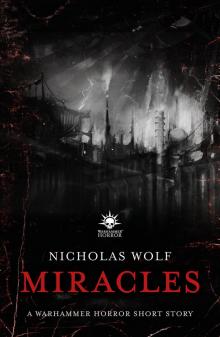 Miracles - Nicholas Wolf
Miracles - Nicholas Wolf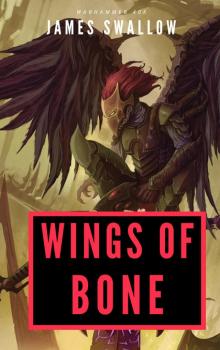 Wings of Bone - James Swallow
Wings of Bone - James Swallow